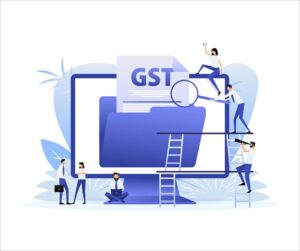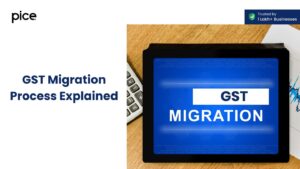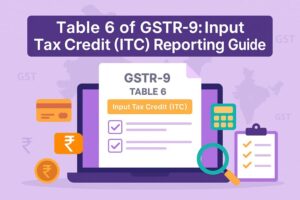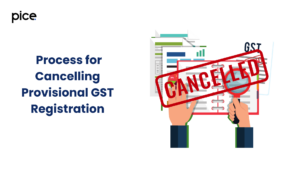Overview of TCS Refund Under GST
- 2 Dec 24
- 8 mins
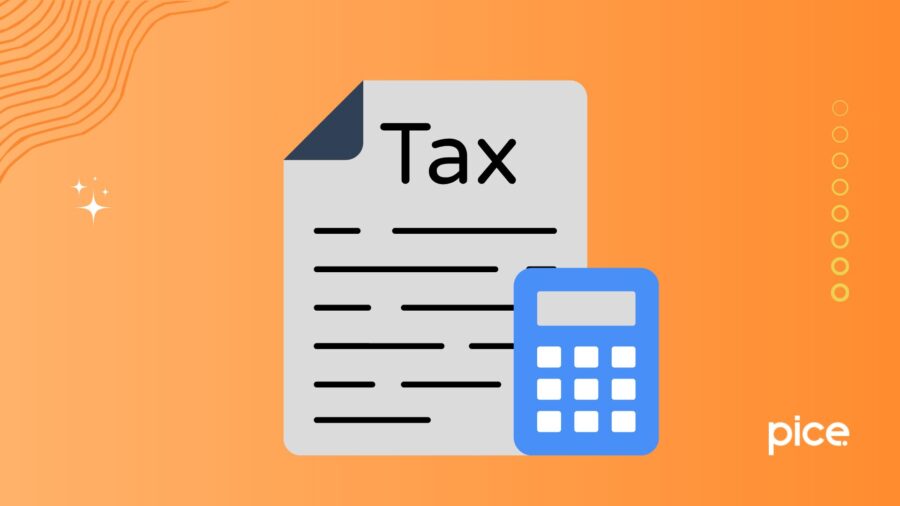
Overview of TCS Refund Under GST
- What Is TCS Under GST?
- Who Is Liable to Collect TCS Under GST?
- When Will the Liability of Collecting TCS Arise?
- What Is the Rate Applicable Under TCS?
- Registration Requirements Under TCS Provisions of GST
- Due Date for Depositing TCS
- How to Compute Taxable Value of the Supplies For TCS?
- Rate of TCS Under GST
- Which Form Can One Use to File TCS Returns?
- Use of GSTR-8 Data by E-commerce Sellers in GSTR-2A
- E-Invoicing Impact on TCS and E-Commerce Operators
- Impact of the TCS provisions
- Conclusion
Key Takeaways
- TCS ensures seamless tax collection in e-commerce under GST compliance.
- E-commerce operators collect 0.5%-1% TCS based on transaction type.
- Sellers can claim TCS refunds by adhering to GST filing norms.
- Mandatory GST registration applies to all e-commerce operators and sellers.
- TCS provisions enhance transparency and reduce tax evasion in e-commerce.
Tax Collected at Source (TCS) is an important provision under the framework of Goods and Services Tax (GST), which applies to specific transactions, particularly for e-commerce operators and sellers. TCS under GST is a tax applicable on the income of the seller from the sale of goods. The e-commerce operator collects TCS from the consideration which is received on behalf of the supplier of goods or services.
In this blog, we will discuss Tax Collected at Source (TCS) in detail, focussing on TCS refund under GST, rate applicable under TCS, registration requirements and more.
What Is TCS Under GST?
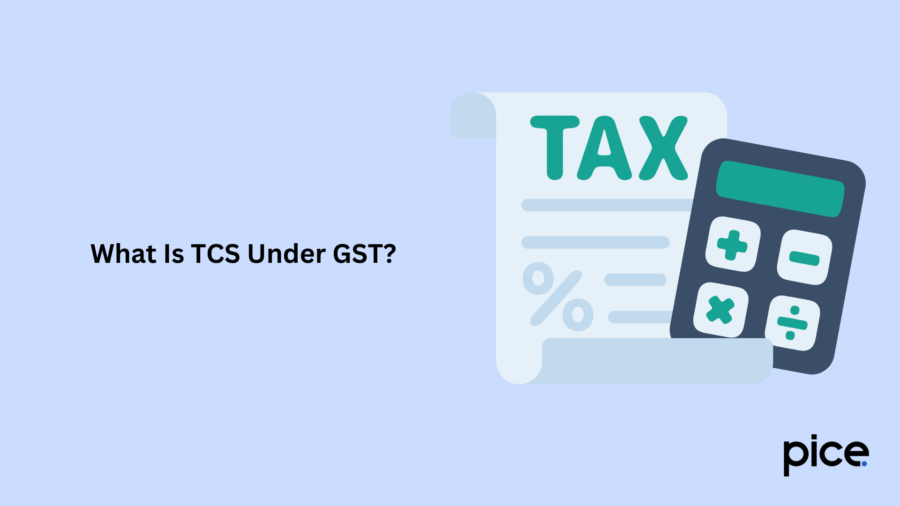
Tax Collected at Source is a mechanism where the buyer makes deductions of a certain tax percentage at the payment source to the seller. You need to deposit this deducted tax with the government on the seller’s behalf.
As per Indian Goods and Services Tax (GST) legislation, it is mandatory for e-commerce companies to charge 0.5% SGST and 0.5% CGST. In cases of interstate transactions, they need to collect a tax of 1% IGST on the taxable supply’s net value, which has been facilitated through the e-commerce platforms.
Who Is Liable to Collect TCS Under GST?
Some specific operators who manage, operate and run e-commerce platforms can collect tax at source. TCS is applicable only in cases where the operators collect the necessary consideration on behalf of the supplier or vendor from the customers.
Let us consider M/s. ABC shop sells garments through Amazon. In this case, Amazon, the e-commerce platform that makes the consideration payment on behalf of the store, is liable for TCS deduction.
Below are a few of the exceptions in the case of TCS provisions for the services that an e-commerce platform provides:
- Passenger transportation (motorcycle, motor cab or radio taxi)
- Hotel/club accommodation (unregistered suppliers)
- Housekeeping services such as carpentry, plumbing, etc. (unregistered suppliers)
When Will the Liability of Collecting TCS Arise?
E-commerce operators are liable to collect TCS while they are paying the vendor. This payment is the consideration that is collected on behalf of the vendor for the goods supplied through the online portal. The tax is collected on the taxable supplies' net value.
What Is the Rate Applicable Under TCS?
A supplier of goods and/or services through an e-commerce operator is liable to receive payment after deducting TCS @ 0.5% as per CGST Notification 15/2024 dated 10th July 2024, Before this, it was 1% till 9th July 2024 as per the notification by the CBIC in Notification no. 52/2018 under CGST Act and 02/2018 under IGST Act.
This implies that in cases of intra-state supplies, the TCS will be collected at 0.5% (0.25% under SGST and 0.25% under CGST). In cases of inter-state supplies, the TCS will be collected at the rate of 0.5%.
Registration Requirements Under TCS Provisions of GST
The e-commerce operators who are liable to collect TCS need to have GST registration. There is no exemption in terms of the threshold limit. Additionally, the dealers who are supplying goods through the portal also need to register under GST, barring a few exceptions.
The following are the registration conditions:
- Goods suppliers making their supplies through e-commerce platforms are not exempt from GST registration.
- Dealers who are supplying goods through the online portal need also register under GST, except the suppliers notified under the Section 9(%) of the CGST Act.
- Services suppliers via e-commerce platforms are exempt from GST registration if the aggregate turnover is no more than either ₹20 lakh or ₹40 lakh (with an assumption that they do not engage in inter-state supplies).
- An e-commerce company needs to register under GST in every state it operates.
Due Date for Depositing TCS
The deduction of Tax Collected at Source (TCS) is made during the month of supply. TCS will be deposited within a span of 10 days from the end of the supply month to the government's credit.
The breakdown of tax payments is:
- The state governments receive the SGST.
- The central government receives the IGST and CGST.
How to Compute Taxable Value of the Supplies For TCS?
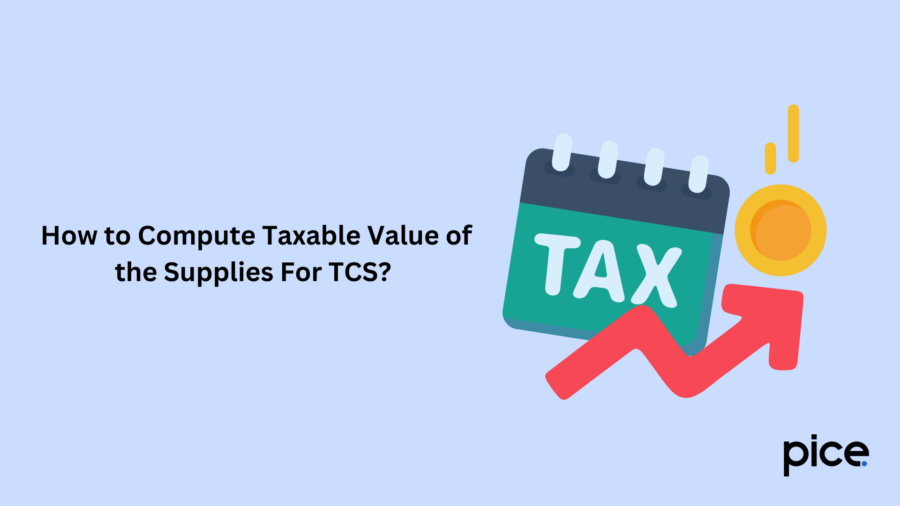
Here is how you can compute the net taxable value of the supplies for TCS:
The total taxable value of taxable supplies (except notified services under the law of GST)
Less: Taxable supplies which are returned to the suppliers through e-commerce operators
After computing, you will find the net value of taxable supplies.
Eligibility for TCS Refund Under GST
There are certain eligibility criteria a seller must fulfil for a GST refund in TCS:
- You need to register under GST.
- You need to submit necessary GST returns (Forms GSTR-3B and GSTR-1), with an excess of TCS credited to Expected Credit Loss (ECL) and avoid the utilisation of the TCS amount of any other tax obligations.
Rate of TCS Under GST
The applicable rate of TCS under GST depends on the type of transaction and the turnover of the seller in the previous tax period. In cases of extra supplies, the applicable rate is 5% (2.5% SGST+ 2.5% CGST) of the gross value of payment for certain transactions in the statute of GST. In the case of e-commerce, the applicable rate is 1% (0.5% CGST+ 0.5% SGST) on the gross value of considerations for suppliers with a turnover exceeding ₹50 lakh in the previous financial year.
Which Form Can One Use to File TCS Returns?
All e-commerce operators need to file Form GSTR-8 within the 10th of the month which follows the month of tax collection. You need to file this return upon depositing the amount of tax collection in the government's credit.
Use of GSTR-8 Data by E-commerce Sellers in GSTR-2A
The details that an operator submits in GSTR-8 will be accessible to every supplier in Form GSTR-2A after GSTR-8's due date of filing. However, these credit details are not available in the GSTR-2B return. The collected tax amount will be reflected in the electronic ledger of suppliers. The suppliers, in turn, are eligible to claim credit after matching their supplies with the details submitted in GSTR-2A.
It is important to remember that you cannot revise GSTR -8 upon filing it. If you find any discrepancy, you need to communicate it to the operator and if it is not rectified within the specific period, the amount of tax will be added to the supplier's liability.
E-Invoicing Impact on TCS and E-Commerce Operators
The system of e-invoicing is accessible to e-commerce operators (ECO) for reporting invoices to the Invoice Registration Portal (IRP). E-commerce operators raise these invoices on behalf of the online suppliers.
Impact of the TCS provisions
Let us look at the two key impacts of the TCS provisions:
- It is beneficial to the government as there will be a significant reduction in cases of tax evasion as tax is to be collected at every transaction.
- All e-commerce platforms related to cloud kitchens or food delivery need to pay taxes on the services they provide. However, this excludes restaurants, including accommodation with more than ₹7,500 daily per unit of tariff.
Conclusion
E-commerce operators are responsible for collecting and depositing TCS, while sellers benefit from the credit collected on their behalf. Understanding the intricacies of TCS refunds under GST, registration requirements, and compliance obligations is essential for businesses operating in the e-commerce sector.
💡If you want to streamline your payment and make GST payments, consider using the PICE App. Explore the PICE App today and take your export business to new heights.
 By
By 





